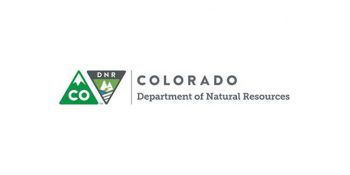Colorado lawmakers this week introduced House Bill 17-1321 designed to bring a stable and sustainable funding source to Colorado Parks and Wildlife (CPW). The bill’s introduction follows more than a year of public meetings with legislators and outdoor enthusiasts across Colorado to gather feedback on addressing the agency’s financial challenges.
As an enterprise agency that gets less than one tenth of one percent of its budget from the general fund, CPW relies on revenue from hunters, anglers and park visitors to cover its expenses, but it lacks the ability to set and adjust fees to cover the rising costs associated with managing wildlife, conserving and enhancing habitat and maintaining and improving parks in our fast-growing state.
Park visitation continues to rise, but a statutory cap on park fee income means CPW lacks resources to meet increasing park operational costs to keep up with greater demand. Resident hunting and fishing license fees were last set by the legislature in 2005. Since then, inflation has cut CPW’s spending power by 22 percent. That has led the agency to defund 50 positions and cut $40 million from its budget, as well as defer maintenance on its 110 dams.
The funding shortfall is having significant consequences. Those include restricting boater access on reservoirs with unfunded inspection stations for invasive species, and the elimination or contraction of popular activities such as Fishing is Fun and the Big Game Access Program that bring new participants to outdoor sports, as well as grants for wetlands, boating and habitat protection.
The bill, with bipartisan sponsorship from Representatives Arndt, Wilson, Catlin, McLachlan, Mitsch Bush and Rankin, would provide the 11-member Parks and Wildlife Commission – which governs the agency – with authority to set parks, hunting and fishing fees within a legislatively mandated cap. The bill would allow the CPW Commission to:
· Increase individual park fees, as well as resident hunting and fishing licenses generally by no more than 50 percent. Sets the fee for an annual senior fishing license at no more than one-half the price of annual resident fishing licenses.
· Increase application fees for hunting licenses allocated through a drawing to $20.
· Establish Aquatic Nuisance Species watercraft sticker fees at $15 (non-motorized over 10 feet), $25 (in-state motorized) and $50 (out-of-state-motorized).
The bill would also allow for increases in certain non-resident license fees (primarily fishing and small game) as well as allow future resident and nonresident fee changes based on the Consumer Price Index. The legislature will retain the ability to alter the fee structure in the future and also retains authority over CPW’s annual budget, including how increased revenue from fees is used.
Passage of the bill would not lead CPW to seek immediate fee increases that hit the 50 percent cap. The CPW Commission will invite additional public input before any fee increases are contemplated and implemented.
CPW’s financial projections show that $14 million in additional revenue will be needed by 2023 simply to maintain current wildlife-related levels of service, and $6.5 million more by that year to maintain existing park operations. Providing additional services requested by the public, and expanding the park system would require $22 million beyond those figures. In addition, a stable annual funding source for the $4.5 million aquatic nuisance species inspection program is necessary to ensure that Colorado’s lakes remain open to recreation.
“Coloradans care deeply about their wildlife and our state parks are more popular than ever. Colorado Parks and Wildlife is proud of the work it does and wants to ensure that we’re able to give our hunters, anglers, wildlife watchers, boaters, campers and others the chance to fully enjoy the treasures Colorado has to offer,” said CPW Director Bob Broscheid. “We look forward to continuing our collaboration with legislators, and we appreciate their hard work on these issues, as together we forge a path toward financial sustainability for managing and protecting our wildlife, habitat and parklands.”
For additional information about CPW’s financial sustainability, visit: http://cpw.state.co.us/Sustainability-Bill

Leave a Reply